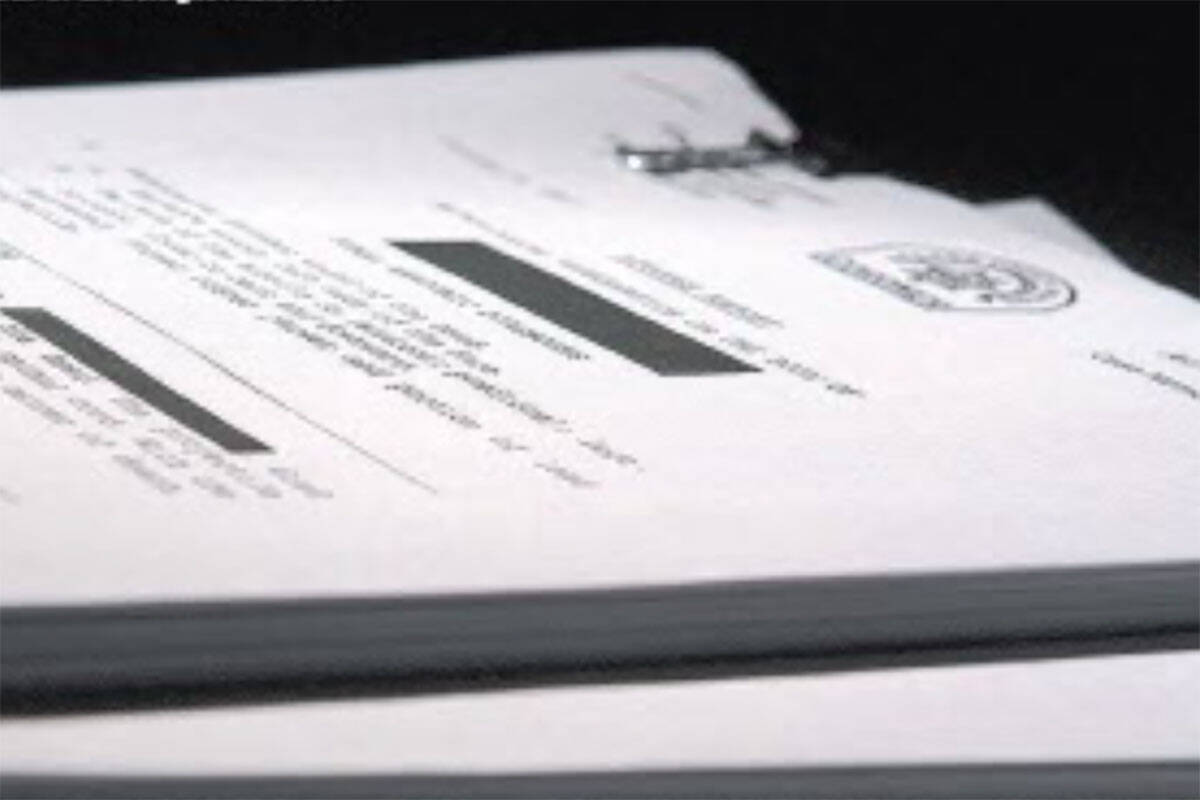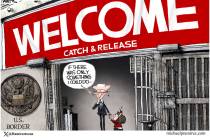Governments keep you in the dark. Here’s what the RJ is doing about it.

Your right to know is in peril.
Government agencies routinely and illegally refuse to release records of the public’s business. This intentional secrecy has gone on for decades, and it’s getting worse.
Now, a core press protection that allows journalists to overcome this lawlessness could be eviscerated by the courts. Authorities want access to information that could reveal the confidential sources of murdered Review-Journal investigative reporter Jeff German, legal maneuvering that’s making whistleblowers everywhere think twice before revealing the kind of information their bosses keep locked down.
Enough. Enough of the stalling and stonewalling of journalism. Enough of trying to extract exorbitant fees from the public to thwart records requests and line government pockets. Enough of keeping taxpayers in the dark.
What are they hiding?
That question is at the heart of a new Las Vegas Review-Journal initiative intended to improve access to public information and ensure journalists can report on the community’s most important issues.
You, our readers, have an important role to play in this effort.
No matter how many times governments are sued over their illegal refusal to be transparent with the public, no matter how many times they lose in court and waste your tax dollars on attorney fees, requests for basic information are denied. Governments misrepresent court precedent. They declare exemptions to the law that have no basis in fact or reality. In extreme cases, they falsely claim information doesn’t exist or they destroy records. Accountability loses. The voting public loses. Democracy loses.
One of the worst recent examples of this noncompliance came from, of all places, the courts. A Review-Journal investigation determined that most traffic tickets in our cities — even the most serious violations — are reduced to parking tickets to keep court dockets clear. The practice keeps dangerous drivers behind the wheel and makes our roads unsafe. Our story compelled the state to create a task force to examine the issue.
But our reporting was incomplete because Las Vegas Justice Court, which handles traffic citations issued in unincorporated Clark County — the valley’s biggest jurisdiction — refused to release ticket-reduction data we received from the cities of Las Vegas, North Las Vegas and Henderson. In an email, Jessica Gurley, the court’s administrator, wrote that her team “did not have the resources or the ‘obligation’ to compile the information,” we reported in July.
Let that sink in.
What are they hiding?
At Las Vegas City Hall, meanwhile, officials last year kept hidden a video that showed a physical altercation between two councilwomen. The Review-Journal requested the video. We were given the runaround. And the video was deleted.
What are they hiding?
Which brings us to the maddening case of Jeff German, who was murdered Sept. 2. Police and prosecutors say he was killed by a local elected official, Clark County Public Administrator Robert Telles, over German’s reporting that Telles was a toxic boss whose office was in turmoil. German’s reporting exposed county inaction on staff complaints and gave primary voters the information they needed to pick someone else for the job. German’s work was based, in part, on confidential sources.
As part of the police investigation into German’s slaying, the reporter’s cellphone and computers were seized. Police and prosecutors say they want unrestricted access to the devices to search for evidence that could be relevant to the criminal case.
I’m not buying that. The Review-Journal supports a search process that would use an independent hearing master to separate sensitive, confidential information from information that could relate to the criminal case against Telles, preserving Telles’ constitutional rights and those of the free press. But authorities have refused this offer. Why?
They know German had high-level sources within the Metropolitan Police Department and the district attorney’s office. Those sources provided German with information under the protection of Nevada’s shield law, which guarantees that journalists cannot be compelled to identify their sources. But now that German is dead, authorities claim the shield law no longer applies.
It’s an opportunity to root out whistleblowers and weaken the law that protects them, thus preventing future leaks of wrongdoing. Two birds. One stone.
What are they hiding?
Recall that in November, the Review-Journal published an investigation that was made possible solely because of the cooperation of confidential sources.
The story revealed the details of a fatal shooting outside Las Vegas by U.S. Bureau of Land Management officers, a flawed investigation by Metro, and the refusal of all agencies to release information about the confrontation. We got the stories by earning the trust of sources and assuring them that, under Nevada law, we can never be compelled to reveal their identities.
We have a solemn obligation to do this kind of work. Press freedoms are enshrined in the First Amendment of the Bill of Rights for an essential reason. Our Founders knew that American governments needed aggressive, independent watchdogs to hold officials accountable and communicate the operations of public entities to voters. A free press, immune from government control, is critical to a healthy, functioning republic. No free press, no democracy, no free country.
It’s outrageous that this principle is all but lost on Southern Nevada institutions. The systemic refusal to provide public information when the very clear, liberal wording of the Nevada Public Records Act requires it is bad enough. But the callous disregard for vital reporter and source protections and the cynical use of a reporter’s brutal murder to trample a pillar of democracy is indefensible.
We won’t stand for it anymore. We hope you won’t, either. Here’s how you can help.
We’re going to more aggressively and more frequently report when governments fail to comply with the Nevada Public Records Act. The feature is called “What Are They Hiding?” It’s a long-overdue Hall of Shame for serial offenders in Nevada governments. When we can’t get answers to questions you want answered, we’ll tell you why, we’ll tell you who’s responsible and we’ll shred their hollow excuses for keeping information from you.
I don’t think it’s a coincidence that the FBI on Wednesday announced a local Corruption Awareness Campaign. Where openness is denied, corruption thrives.
But this isn’t just about the Review-Journal. We know that many of you, our readers, request public records, too. The Nevada Public Records Act guarantees everyone — not just the media — access to public information. We also know that some governments have a tendency to be even less responsive to taxpayers than they are to us — and that’s saying something.
So, if you request public information and are wrongly denied access, we want to hear about it. Email us at whataretheyhiding@reviewjournal.com. We’ll highlight some of your public-records struggles, too.
As always, we welcome your news tips at newstips@reviewjournal.com.
Thanks for reading the Review-Journal.
Glenn Cook is executive editor of the Las Vegas Review-Journal. You can reach him at gcook@reviewjournal.com.
























